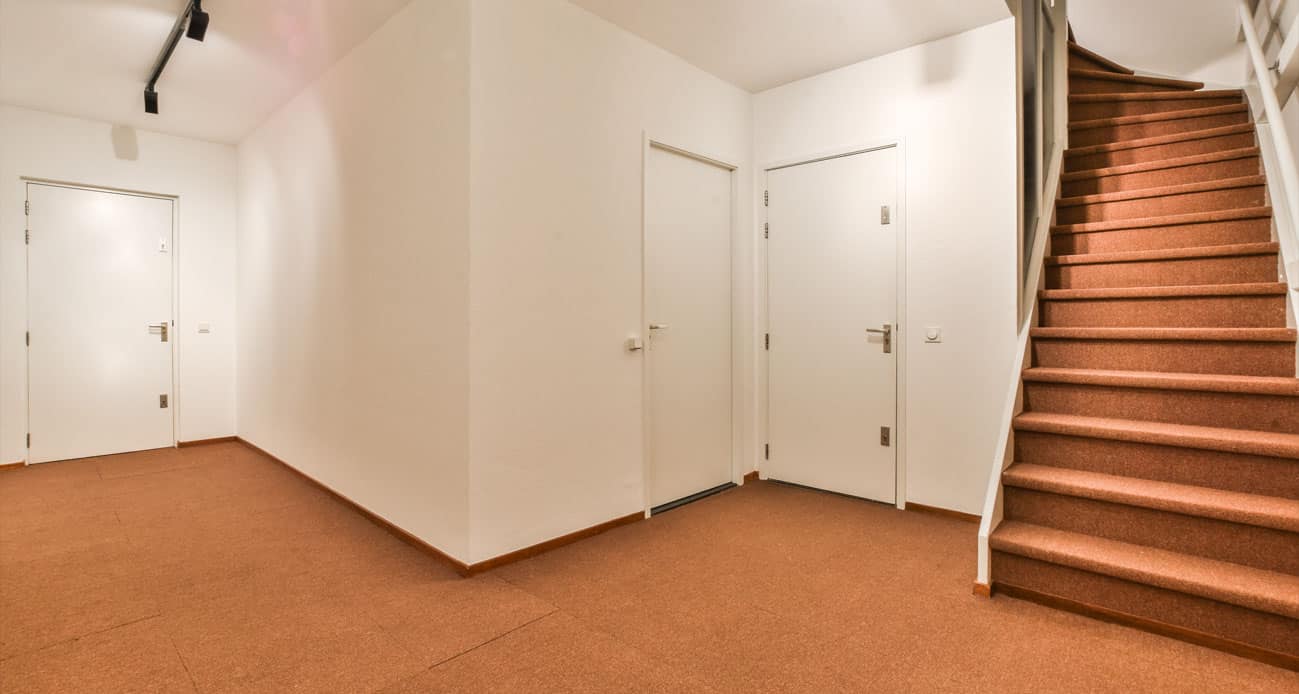
Ball bearing hinges vs regular hinges? What’s the difference between plain bearings and ball bearings? One consideration on any commercial door project is the type of hinge that is best suited to the application. Because of the variety of door sizes and weights, hinges are placed into three groups:
- Heavy Weight Contractor Grade Ball Bearing Hinges (5-knuckle) or Anti-Friction Bearing Hinges (3-knuckle);
- Standard Weight-Ball Bearing;
- Standard Weight-Plain Bearing.
The two factors that determine the weight and structure of the hinge are the weight and frequency of use of the door. When calculating your door weight, be sure to include the approximate weight of additional hardware (door closers, exit devices etc.) that will be installed on the door.
Heavy Weight Commercial Contractor Grade Ball Bearing Hinges/Anti-Friction Bearing hinges are for use on heavy doors with high-frequency usage, Standard Weight-Ball Bearing Hinges are for use on medium weight doors of medium frequency usage, and Standard Weight-Plain Bearing Hinges are for use on lightweight doors of low-frequency usage.
Definitions of Bearing Structures
Plain Bearing: The hinges do not have any special bearing structure. They are standard hinges for use on lightweight doors in low traffic environments.
Anti-Friction Bearing (AB): These are made of concealed resilient engineering plastics that provide a self-lubricant and very strong bearing surface. The nylon acts as a cushion for the door, yet allows the door to flow smoothly on the surface of the nylon with an extremely low wear factor.
Ball Bearings (BB): Ball bearings are engineered to throw the knuckle weight against specially hardened steel raceways, which ride on the bearing surfaces. The one-piece cup protects the bearings from moisture and dust. Standard Weight Ball Bearing Hinges contain 2 ball bearings for extra durability. Heavy Weight Commercial Contractor Grade Ball Bearing Hinges feature 4 ball bearings for additional smoothness.
Builders can choose from standard or ball bearing hinge configurations when hanging a door, with each offering its own features and benefits.
Features of Standard Hinges
Standard or plain bearing hinges have barrels that are broken down into two, three or five connecting sections. The sections, known as knuckles, interlock like teeth to wrap around the hinge pin and connect the leaves. There is no buffer between each knuckle of the barrel. This tends to wear the hinge down over time as the sections grind against one another. Plain bearing hinges are almost always noisy or squeaky, even on lightweight doors.
Features of Commercial Contractor Grade Ball Bearing Hinges
Ball bearing hinges may also have two, three or five knuckles. They differ from plain bearing hinges in that they have a steel ball bearing, or buffer, in between the knuckles. Heavy-duty ball bearing hinges have bearings between every knuckle. These units tend to be durable, better performing and less noisy than standard hinges.
Standard hinges should be used only on residential and light-duty commercial applications. They are usually not the best option for an entrance door or for any openings that are used frequently. They work well on temporary doors or lightweight storage and closet doors. For commercial applications, ball bearing hinges are almost always the best option.
According to the National Fire Protection Association (NFPA), all hinges used on fire doors must be a ball bearing. This helps ensure the door can be properly operated over time, as a fire door must be closed completely to function as intended. Standard bearing hinges may be used on fire doors only when they are part of a packaged assembly labeled for use of fire-rated openings. The plain bearing hinges must also be tested to operate successfully for 350,000 cycles.
When comparing different types of hinges, buyers must consider not only upfront costs but also the cost of maintenance and replacement over time. Commercial contractor-grade ball bearing hinges cost more than standard units but will almost always last longer and require fewer repairs.
Get in touch
Need help choosing the correct hinges for your commercial project? Check out the range at Homebuilders Hardware or give us a call today.







